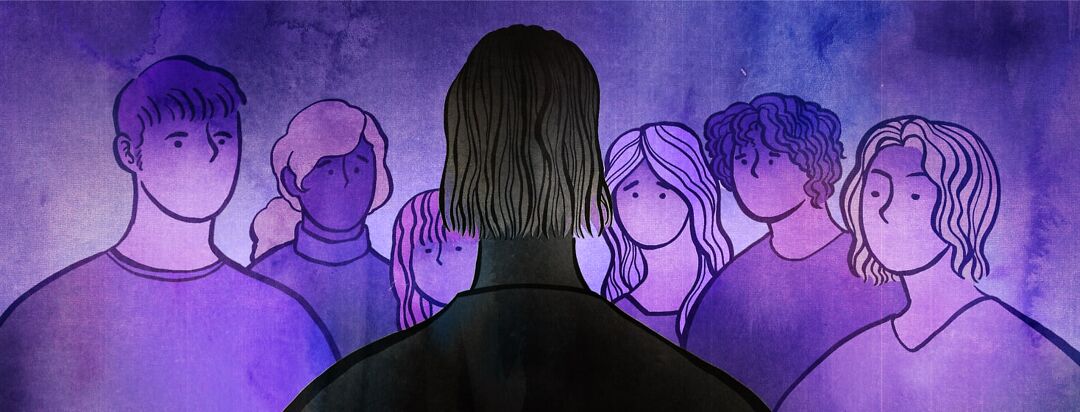Fear of "The Look"
Fear of “the look” holds far too much power over me sometimes. I imagine we’ve all gotten the look at least once. Sometimes it might be a look of pity, other times a look of confusion or even disdain. It usually comes from someone who is generally healthy and seemingly unaware that not everyone around them is as lucky. The look gives me an immediate pit in my stomach, a flush in my cheeks, and an urge to explain myself.
Being on the receiving end of “the look” is never a pleasant feeling.
Before my ulcerative colitis diagnosis, I never imagined how much having a chronic illness could make you feel alone or like an outsider in social settings. Of course, I’d experienced some version of “the look” before — people aren’t always nice even if you’re healthy, but it wasn’t something I felt on guard about day-to-day.
When society values health
That changed when I was diagnosed with ulcerative colitis in my early twenties. It seemed like everyone around me was so healthy, and I felt a powerful sense of embarrassment about my illness. I know being embarrassed over being sick may seem strange, but in a society that values being healthy and productive above all else, it did often feel like a personal failing.
On top of that, I just had to have the chronic illness that leaves you prone to having an accident any day. It felt like I had lost control of my body, and I imagined that somehow everyone knew. Part of me wished for another illness — something more palatable for conversation.

Join the conversation